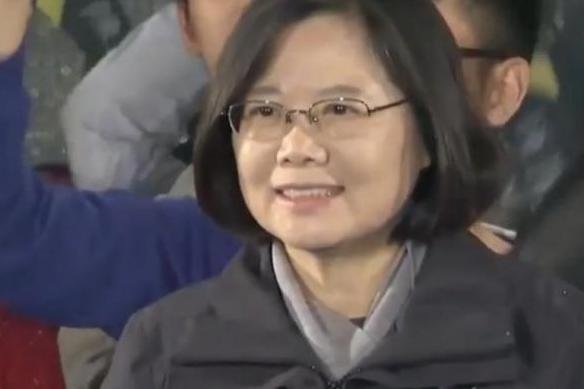Tsai Ing-wen, Taiwan’s first female president-elect, could be taking an active approach to recovering the assets of the Kuomintang party Photo by WSJ video/AOL
TAIPEI, Taiwan, Jan. 20 (UPI) -- Tsai Ing-wen, Taiwan's first female president-elect, could be taking an active approach to recovering the assets of the Kuomintang party, her political rival.
Tsai's aides have said the Kuomintang's assets, valued at more than $760 million, were seized after World War II from Taiwan's colonizer Japan, The Wall Street Journal reported.
The assets under Kuomintang control include a five-star hotel in Palau, South Korean network JTBC reported.
Tsai's advisers told press the assets belong to the country, because they were accumulated during a dictatorship that lasted for about four decades.
The recovery of Kuomintang assets is a priority for Tsai, they said.
Tsai's policy is a departure from her Democratic Progressive Party predecessor Chen Shui-bian's priorities. Chen served as president between 2000 and 2008.
Unlike Chen, the president-elect could also bring her policies before a parliament where the DPP now occupies more than half the seats.
China has been watching the elections carefully; Beijing does not recognize Taiwan as a sovereign state.
Beijing had been carefully cultivating ties with the defeated Kuomintang, but Tsai's victory is raising new questions.
The opposition's victory in Taiwan, however, could serve another purpose: a check against China's increasing influence in the region, according to John Bolton, a former U.S. ambassador to the United Nations.
Bolton wrote that the next U.S. president could receive Taiwanese diplomats officially at the State Department if China refuses to give up its activities in the South China Sea.
The United States should play the "Taiwan card" against China, Bolton wrote.















